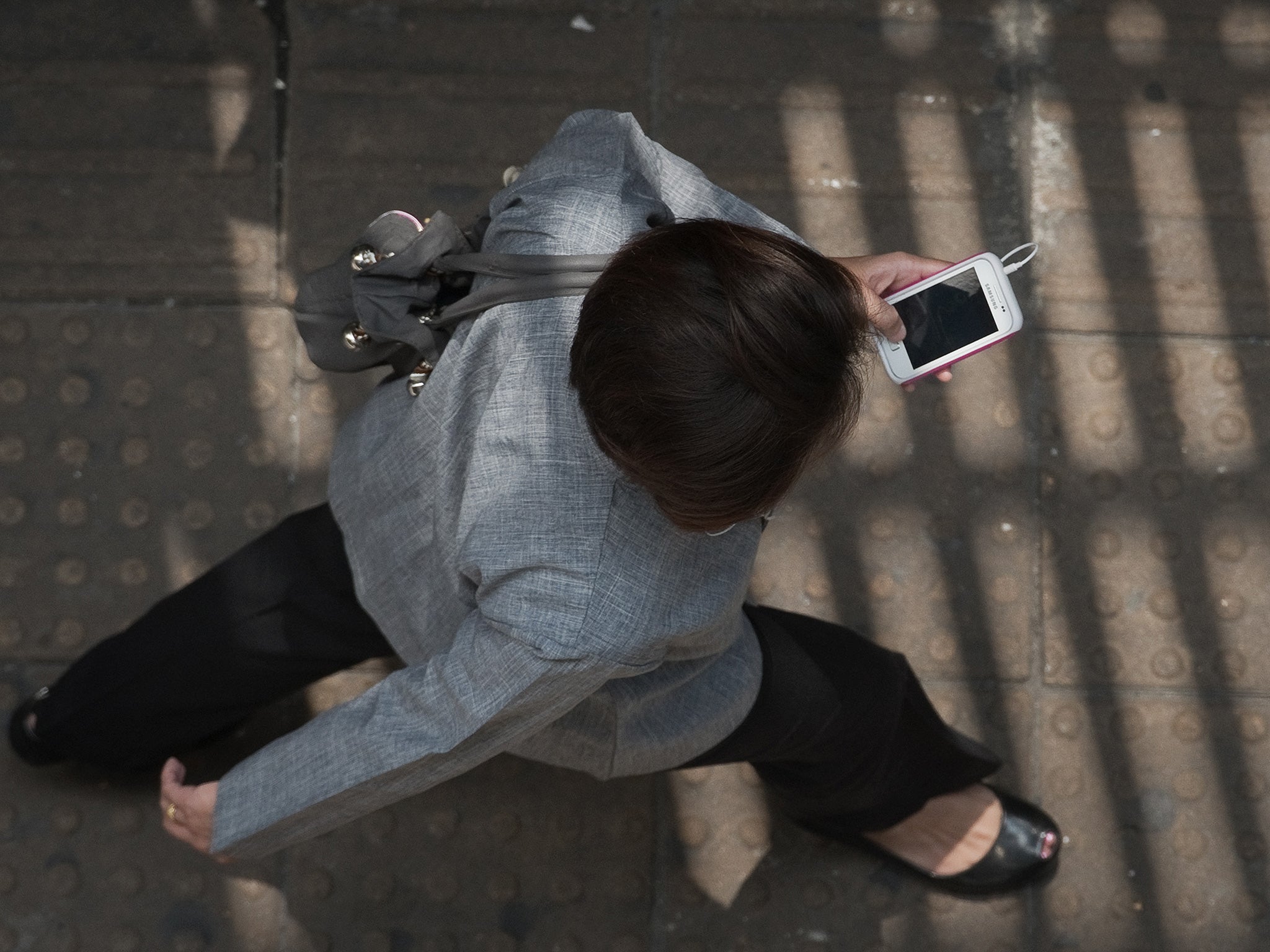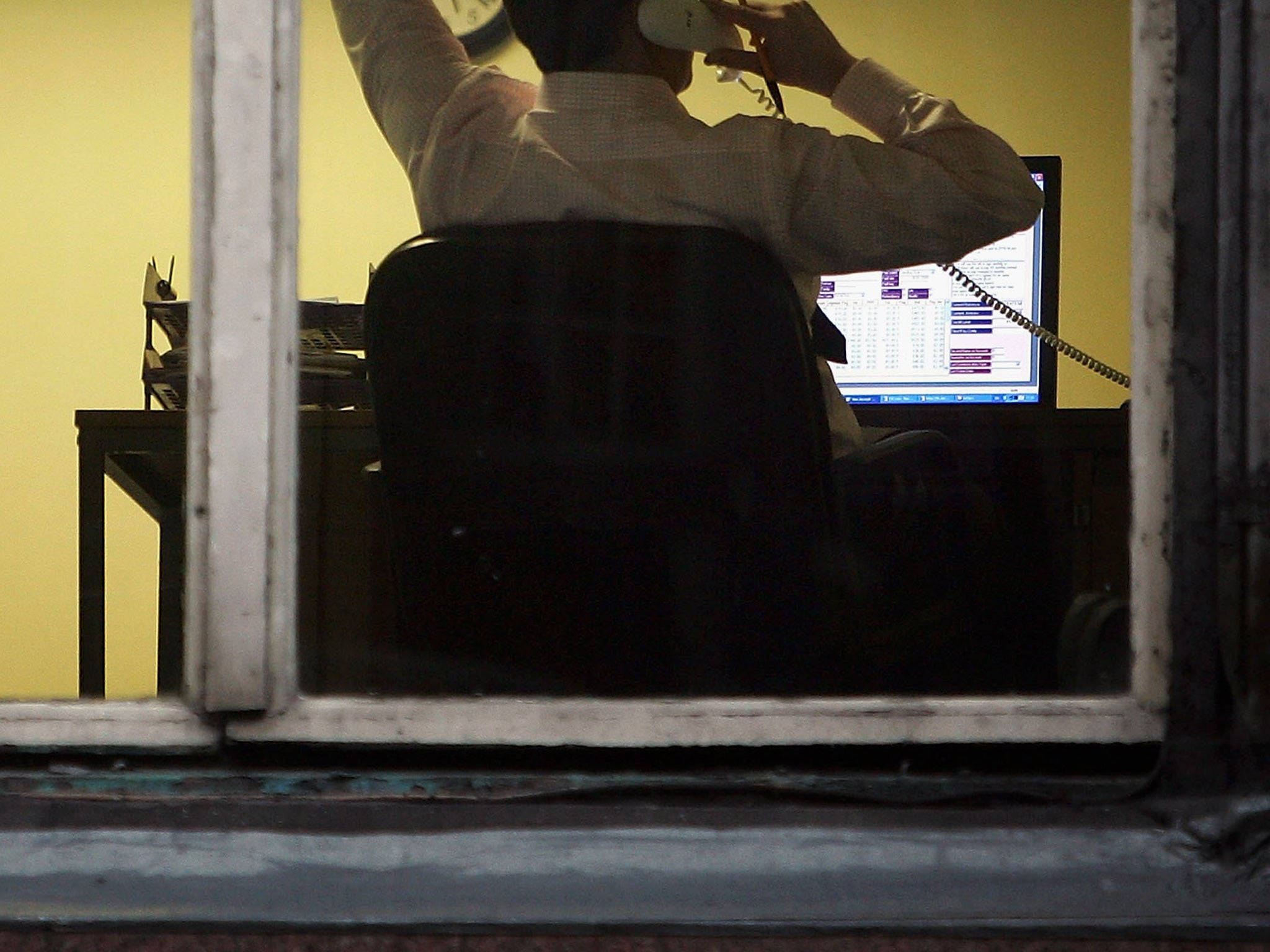Spending half the day on your feet reduces risk of heart attacks and cancer, study says
Research recommends people abandon their chairs for at least two hours a day

Your support helps us to tell the story
From reproductive rights to climate change to Big Tech, The Independent is on the ground when the story is developing. Whether it's investigating the financials of Elon Musk's pro-Trump PAC or producing our latest documentary, 'The A Word', which shines a light on the American women fighting for reproductive rights, we know how important it is to parse out the facts from the messaging.
At such a critical moment in US history, we need reporters on the ground. Your donation allows us to keep sending journalists to speak to both sides of the story.
The Independent is trusted by Americans across the entire political spectrum. And unlike many other quality news outlets, we choose not to lock Americans out of our reporting and analysis with paywalls. We believe quality journalism should be available to everyone, paid for by those who can afford it.
Your support makes all the difference.Office workers should abandon their chairs for half their working day to reduce their risk of heart attacks, cancer, or diabetes, according to new guidance recommending people spend at least two hours – and preferably four – a day on their feet.
Bosses should provide desks which people can stand at, and allow workers to have regular breaks to walk around, according to the new study, commissioned by Public Health England (PHE) and the Active Working Community Interest Company.
And companies should warn their employees that: “prolonged sitting, aggregated from work and in leisure time, may significantly and independently increase the risk of cardiometabolic diseases and premature mortality,” says the expert guidance which is published in the British Journal of Sports Medicine.
Office workers should spend at least two hours a day “standing and light activity (light walking) during working hours, eventually progressing to a total accumulation of 4 h,” recommends the first ever British guidance designed to curb the health risks of too much time sitting down.

Based on the advice of a team of international experts from universities and institutes in Britain, Australia and the US, it cites mounting evidence of the links between “sedentary living, including time at work, and the leading causes of morbidity and mortality (cardiovascular disease, diabetes and some cancers.” The guidance states: “For those working in offices, 65-75% of their working hours are spent sitting, of which more than 50% of this is accumulated in prolonged periods of sustained sitting.”
It warns that the change in how we work may be uncomfortable to start with: “Those individuals new to adopting more standing-based work could expect some musculoskeletal sensations and some fatigue.” Yet allowing workers to spend less time sitting down is necessary for better health habits generally, with getting people “standing and moving more frequently as part of their working day” part of a “first ‘behavioural’ step” to increasing the amount of exercise they do. And it also makes good business sense: “including economic savings and benefits from improved productivity, profitability, and reduced sickness and absenteeism.”
But compared to other countries, Britain is far behind in promoting physical movement in the workplace. While 90 per cent of office workers in Scandinavia now have access to sit–stand workstations, only one per cent of British workers have this choice, according to the study. It recommends that employers look at how to give their staff breaks to allow them to stand and move around, as well as having workplaces designed to allow people to work more easily either at their desk or other parts of the office while standing up.
Professor John Buckley, lead author of the new guidance, said: “What may be most shocking is that irrespective of your level of physical activity, prolonged sedentary working leads to a significant increase in the risk of: heart disease, diabetes, obesity, certain cancers, depression and muscle and joint problems.” And another of the researchers, Gavin Bradley, director of Active Working, said: “British people sit on average for 8.9 hours each day and 70% of sitting time is at work. International research now provides compelling evidence that prolonged sitting has major health impacts.”
Responding to the findings, Dr Ann Hoskins, PHE’s deputy director for health and wellbeing, said: “Being active is good for your physical and mental health. Simple behaviour changes to break up long periods of sitting can make a huge difference. We welcome a spotlight on sedentary lifestyles, however more research needs to be carried out before daily targets for work place activity are recommended.”
And Dr Jill Miller, research advisor at the Chartered Institute of Personnel and Development, commented: “Employers should consider employees’ well-being when designing both jobs and the work environment, and encourage people to take regular breaks from their work station.” She added: “Employers can encourage people to leave their desks at lunch time, and not just encouraging people to go to the canteen and sit down again, but to use outside space,” and workers should be “encouraged to walk around rather than sending internal emails.”
In a statement, a spokesperson for the Confederation of British Industry (CBI) said: “Companies will generally take a common sense approach, and offices can be re-designed to encourage different ways of working, but ultimately firms will seek to balance the practicalities of time spent away from desks with the needs of the business.”
Case Study: Stephanie Mullins, 23, Tring - works in PR Stephanie at work using her standing desk
“I wasn’t just tired of sitting at a desk all day. I had rejuvenated my lifestyle at home and was determined to continue this at work. I was eating healthily, going to the gym every morning and then sitting at a desk all day – the latter just didn’t seem to fit.
Here at BlueSky PR, management were fully supportive of the idea of a standing desk. It was ordered, and built, over one weekend in February this year. It works on a hot-desking basis, so our team can use it whenever we feel the need to get out of our office chairs, and there’s room for more than one person at once.
Learning about the need to treat our bodies the right way, I make sure I stand every day. I try to spend at least an hour in the morning and a couple of hours in the afternoon standing. I definitely plan to spend more time out of my seat and on my feet.
It’s better for my spine, my neck and my shoulders, I can feel the difference. My posture has definitely improved. I’ve spent the last ten months working on my health and fitness, and it’s great to be able to have a change in the office too. Having lost over five stone since July 2014, it’s a complete overhaul of my lifestyle. Treating our bodies right nine to five, as well as the hours outside the office, has become important to many office workers today. Something that I think we should all be encouraging more.”
Stand and deliver: Well-known figures who spurned their seats Winston Churchill, in 1939, preferred to work standing at a specially-made desk at his home in Chartwell, Kent
Thomas Jefferson, third President of the United States, stood at a tall desk to draw up architectural plans for buildings like the Virginia State Capitol.
Virginia Woolf wrote novels while standing at a special, high desk.
Former British Prime Minister Winston Churchill would often work on his book manuscripts at an upright desk, as did the US founding father, Benjamin Franklin.
Leonardo Da Vinci was also said to have worked using a standing desk.
Join our commenting forum
Join thought-provoking conversations, follow other Independent readers and see their replies
Comments